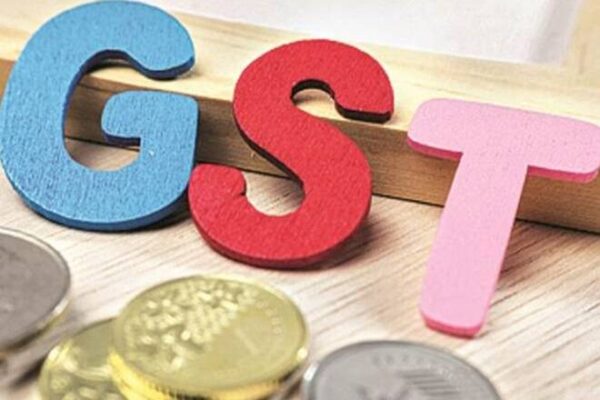1.0 Introduction
Making Investments are important because in today’s world as earning money is only not enough and you need to make your money work hard for you as well. Money lying idle in your bank account is an opportunity lost and further results in erosion of such money due to inflation. Accordingly each individual should invest the money smartly to get good returns out of it. The Indian investor has a number of investment options to choose from. Some are traditional investments that have been used across generations, while some are relatively newer options that have become popular in recent years. Some of the popular investment options currently available in India are Stocks, Mutual Funds, Capital Gain Bonds, FDR’s, RD’s, PPF/EPF, Gold and real estate.At the outset it is to clarify that the purpose of this article is not to deliberate upon which is best option to invest but rather to dwelve upon the GST implications on personal investments .
2.0 GST implications on personal investments
The GST implication in respect of various options available wherein individuals can invest their money, are discussed below:
2.1 Stocks / Shares
Goods and Services Tax is a tax on supply of goods or services or both. Thus, in order to be exigible to GST, an activity / transaction should be a supply and that too of goods or services or both. The definition of ‘goods’is provided in Section 2(52) of the CGST Act, 2017 and ‘services’is mandated in Section 2(102) of the CGST Act, 2017. As per said definitions ‘securities’ is neither regarded as goods nor regarded as services.Therefore, supply of securities fall in the definition of ‘non-taxable supply’ under section 2(78) of the CGST Act, 2017.
Now we need to see whether ‘stocks’ / ‘shares’ is covered under the definition of securities. Section 2(101) of the CGST Act, 2017 provides that ‘securities’ shall have the same meaning as assigned to it in clause (h) of section 2 of the Securities Contracts (Regulation) Act, 1956 (SCRA). As per sub clause (i) of clause (h) of said Act “securities” includeshares, scrips, stocks, bonds, debentures, debenture stock or other marketable securities of a like nature in or of any incorporated company or other body corporate. As stocks is covered under expression securities which is not regarded as goods as well as services under GST law there would be no applicability of GST on purchase of stocks. Similarly, there will be no GST when such individual sells such stocks. However, if some service charges or service fees or documentation fees or broking charges or such like fees or charges are charged which is normally paid in case the stocks are purchased / sold from / in secondary market, the same would be a consideration for supply of service and chargeable to GST which is to be paid by the supplier of service. However same can of course be charged onto the recipient of service i.e. the individual making the investment.
Further an individual receives dividend on such stocks whenever declared by the Company which being a share of profit as well as transaction purely in money and not towards supply of any good or service. Accordingly such dividend would not be subject to GST.
2.2 Mutual Funds
As discussed supra that GST is not applicable on securities. The units or any other such instrument issued to the investors under any mutual fund scheme is also covered under the definition of’ securities as per subclause (id) of clause (h) of Securities Contracts (Regulation) Act, 1956.Accordingly, GST would not be applicable on purchase of mutual funds. Similarly, there will be no GST when such individual sells such mutual funds. However, if some service charges or service fees or documentation fees or broking charges or such like fees or charges are charged, the same would be a consideration for supply of service and chargeable to GST and will be paid by supplier of service. It is further been clarified by CBIC recently in 91 FAQs issued on Banking, Insurance and Stock Brokers Sector, that exit load in the form of a fee (whether or not as a fixed percentage of the investment) is liable to GST. Even if the exit load is in the form of units in the fund, it may be concluded that the consideration received in money was later converted to NAV units.
Further an individual receives dividend on such Mutual Funds whenever declared which being a share of income of such mutual fund as well as transaction purely in money and not towards supply of any good or service. Accordingly such dividend would not be subject to GST.
2.3 Capital Gain Bonds
In case you have earned long term capital gain from sale of land and building and is desirous to save tax thereon,you can invest in capital gain bonds issued by PFC, REC, NHAI and IRFC and avail deduction under Section 54EC of the Income Tax Act, 1961.Such capital gain bonds are issued in nature of Debentures and thus would qualify as securities under Securities Contracts (Regulation) Act, 1956.Accordingly, there would be no applicability of GST on purchase of capital gain bonds.Further such bonds bear an annual interest @ 5.75% which will also not be subject to GST as services by way of extending deposits in so far as the consideration is represented by way of interest has been exempted vide Entry 27 of Notification No. 12/2017-Central Tax (Rate) dated 28-06-2017 and similar Notifications issued under other GST Act(s).
2.4 Fixed Deposit Receipts (FDR) / Recurring Deposits (RD)
Normally persons who are risk aversorsgenerally invest in FDRs/ RDs with Banks / Post Offices.Now the questions before us are whether the GST is applicable on investment in FDRs / RDs and what be the position of taxability of interest earned on such deposits. In this regard it may be noted that investment in FDRs / RDs are transaction purely in money and money has been specifically excluded from the definition of ‘goods’as provided in Section 2(52) of CGST Act, 2017 and ‘services’as mandated in Section 2(102) of CGST Act, 2017.Accordingly no GST would be applicable at time of making investment in FDRs / RDs. As regards applicability of GST on interest earned on such deposits is concerned it is important to note that services by way of extending deposits in so far as the consideration is represented by way of interest has been exempted vide Entry 27 of Notification No. 12/2017-Central Tax (Rate) dated 28-06-2017 and similar Notifications issued under other GST Act(s). Accordingly, interest on FDR / RD is an exempted supply and not exigible to GST.
2.5 Public Provident Fund / Employee Provident Fund
Person desirous of earning tax as well as risk free returns opt for investment in public provident fund.Further persons employed in an entity aremandatorily covered under Employee Provident Fund Scheme wherein employer as well as such employee contributes. Investment / contribution in such funds is also a transaction in money and therefore not exigible to GST. Further interest on such funds is also exempted from GST.
Further in regard to EPF, certain charges are levied by Employees Provident Fund Organisation (EPFO)which is paid by the employers. Such charges have been exempted from levy of GST vide Entry 31 of Notification No. 12/2017-Central Tax (Rate) dated 28-06-2017 and similar Notification issued under other GST Act(s).
2.6 Gold
Jewellery is the most traditional and the dominant form of buying gold in India. If we talk about GST in respect of Gold it is important to note here that gold attracts an import duty of 10%, in addition to 3% GST, and GST @ 5% on the making charges of the jewellery. Normally it seen that individuals exchange old jewellery with new one from the jeweller , the question here is that whether sale of old gold by individuals for a consideration would attract GST. In this regard, the finance ministry has clarified that even though the sale of old gold by an individual is for a consideration, it cannot be said to be in the course of furtherance of his business (as selling old gold jewellery is not the business of the said individual), and hence does not qualify to be a supply per se and thus not exigible to GST. However in this regard it is important to note that GST will apply on the jewellery purchased from jeweller on the gross amount of sale before making reduction on account of sale of old jewellery.
2.7 Real Estate
Although in recent past the real estate as an investment option has lost its sheen. However still for some it remains an option for investing. For the purpose of examining the applicability of GST let us divide realestate in three types:
a) Land
As per Section 7(2)(a) of the CGST Act, 2017 read with para 5 of Schedule III of said Act, sale of land is treated neither as supply of goods nor a supply of services. The reason for such exclusion is that currently stamp duty is applicable on sale of land and such stamp duty has not been subsumed under GST law. Accordingly, there would be no levy of GST on purchase/sale of land. However, in case any broker is involved in purchase/sale of land and brokerage charges are paid to him, it would be subjected to GST except where such broker is not registered as its aggregate turnover is below the threshold exemption limit of Rs 20 lakhs. It may further be noted here that in case such land is given on rent and the aggregate turnover of such individual exceeds Rs 20 lacs, registration would be required along with payment of GST on such rent.
b). Completed Building
As per Section 7(2)(a) of the CGST Act, 2017 read with para 5 of Schedule III of said Act, sale of building subject to clause (b) of paragraph 5 of Schedule II, is treated neither as supply of goods nor a supply of services. It may be noted here that clause (b) mandates that construction of a complex, building etc intended for sale to a buyer would be treated as supply of services, except where the entire consideration is received after issuance of completion certificate, where required, by the competent authority or after its first occupation, whichever is earlier.
In view of above sale of completed building would not be subject to GST. However, any brokerage charges paid on such purchase / sale would be subject to GST.It may further be noted here that in case such completed building is given on rent and the aggregate turnover of such individual exceeds Rs 20 lacs, registration would be required along with payment of GST on such rent. However GST is not required to be paid in respect of residential dwelling given for residential use as same has been exempted from levy of GST vide Notification No. 12/2017-Central Tax (Rate) dated 28-06-2017 and similar Notification(s) issued under other GST Act(s).
c). Building under Construction
In view of clause (b) of paragraph 5 of Schedule II, construction of a complex, building etc intended for sale to a buyer would be treated as supply of services, except where the entire consideration is received after issuance of completion certificate, where required, by the competent authority or after its first occupation, whichever is earlier. Accordingly purchase / sale of any building which is not complete and is under construction would be subjected to GST and such GST would be paid by the builder after charging the same from the customer.
The rate of GST applicable on such purchase / sale of building would be 18% on the 2/3rd to total amount (value of land or undivided share of land on which GST is not applicable is deemed to be 1/3rd of the total amount). It may be noted here that recently the AAR, New Delhi has adjudged that during construction of complex, building etc the land and its superstructure becomes inseparable and hence, separate sale of land and its superstructure is not permissible. The impact of this Advance Ruling is that in case of construction of building the builder cannot enter into two separate agreements viz one for sale of land for a higher amount and one for sale of superstructure with lower amount, in order to save GST considering the fact that there is no GST on sale of land.In light of the Ruling the value of land would be deemed to be 1/3rd of the total transaction value (irrespective of actual value of land) and would not be subject to GST and GST @ 18% would be charged on balance 2/3rd value which would be regarded as towards sale of superstructure which effectively comes to 12% of the total transaction value.
Apart from above an option has also been provided to pay GST @5% for non affordable housing projects instead of the the general effective rate of 12% as discussed supra. However in such a situation no Input Tax Credit can be availed by such builder. Further such a builder may also have to discharge GST under reverse charge mechanism on procurements from unregistered persons.
3.0 Conclusion
The GST implications on personal investments as discussed in the preceding paras is summarised in the table below:-
| Sl No. | Description of Investment | Whether GST applicable on purchase / Sale / Contribution | Whether GST applicable on fee / charges for purchase / sale/ Contribution | Whether GST applicable on income derived from investment |
| 1. | Stocks / Shares | NO | YES | NO |
| 2. | Mutual Funds | NO | YES | NO |
| 3. | Capital Gain Bonds | NO | YES | NO |
| 4. | FDR/ RDs | NO | N.A | NO |
| 5. | PPF / EPF | NO | NO | NO |
| 6. | Gold | YES NO (in case of sale by individual) | YES | N.A |
| 7. | Land | NO | YES | YES |
| 8. | Completed Building | NO | YES | YES |
| 9. | Building under construction | YES | YES | N.A |
***
[rainbow]Don’t miss the next GST Update / Article / Judicial pronouncement[/rainbow]
Subscribe to our newsletter from FREE to stay updated on GST Law
Resolve your GST queries from national level experts on GST free of cost.
Frah Saeed is a law graduate specializing in the core field of indirect taxes and is the Co-founder of taxwallah.com. She has authored many publications on GST and is into full-time consultancy on GST to big corporates. She as a part of taxwallah.com heads a team comprising of Chartered Accountants and Advocates and plays a key role in our mission to disseminate GST knowledge to all.




